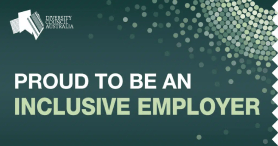What is ECEI?
The Early Childhood Early Intervention (ECEI) approach is designed to help children develop skills and achieve their best possible outcomes throughout their lifetime. ECEI services are available to all children 0 to 6 years with developmental delays or disabilities. It is part of the NDIS, but children don’t need a diagnosis from a doctor to access services. However, if a child is diagnosed with an ongoing disability, they can access NDIS funding at any time.
The ECEI approach is used to help children avoid needing long-term support for the remainder of their lives. It is designed to be accessed in a child’s early stages of development.
How does ECEI work?
ECEI supports children in their early stages of development. Children who still require support can transition onto an NDIS plan at 7 years of age. Learn more about the ECEI step-by-step process on the NDIS website.


How do I access ECEI services?
The NDIS has engaged Early Childhood Partners around Australia to deliver the ECEI approach. These Early Childhood Partners will be the first point of contact for families. They discuss the most appropriate supports to benefit the child and provide information and referrals to other support services.
Find Early Childhood Partners here.
What types of supports are funded by ECEI?
An Early Childhood Partner will connect you with the most appropriate supports for your child in your area, such as a local community health centre, educational settings and playgroups.
Does LiveBig provide ECEI services?
No, LiveBig are not Early Childhood Partners. We provide specialist therapy and assessment services to people on NDIS plans from 7 to 65 years of age.
What is the NDIS?
The National Disability Insurance Scheme (NDIS) provides Australians under 65, who have significant and permanent disability, with funding for support services.
The National Disability Insurance Scheme (NDIS) is the new way the Australian Government now supports people living with disabilities. The scheme is based on an individualised and lifelong support system and is delivered through individually funded plans.
The NDIS provides funding for all eligible people with a diagnosed disability to access support services. These supports may include links to existing services within the participant’s community and necessary funded supports.
How does the NDIS work?
The NDIS works by giving individuals with diagnosed disabilities funding to access their required support and therapy services.
What types of supports are funded through the NDIS?
The NDIS may fund the following supports for participants, including:
- daily personal activities
- transport to enable participation in community, social, economic and daily life activities
- workplace help to allow a participant to successfully get or keep employment in the open or supported labour market
- therapeutic supports including behaviour support
- help with household tasks to allow the participant to maintain their home environment
- help to a participant by skilled personnel in aids or equipment assessment, set up and training
- home modification design and construction
- mobility equipment
- vehicle modifications
How do I access NDIS funding and services?
Once you’ve checked your eligibility and have a diagnosed disability from a general practitioner (GP), you will received funding to access support services, known as an NDIS plan.
Based on your diagnosis, you will receive an allocated amount of money in your NDIS plan to access the support and therapy services that you need.
Does LiveBig provide NDIS services?
Yes, LiveBig provides specialist therapy and assessment services for people with mild to severe disabilities with NDIS plans.
What are the differences and similarities between ECEI and NDIS?
Differences:
- The ECEI approach is for children 0-6 years old, unless they are diagnosed with an ongoing disability. The NDIS is for people 7-65 years old.
- Children don’t need a diagnosis certificate from a doctor to access ECEI services. People will need to have a diagnosed disability to access NDIS services.
Similarities:
- Both exist to help people with mild, moderate and severe disabilities.
- Both are funded by the Australia Federal Government.
How do ECEI and NDIS work together?
While the ECEI approach is designed to assist children with developmental delays or disabilities at the beginning of their life, some children will require continued support.
At 7 years old, a child who has been receiving ECEI support is eligible for an NDIS plan if they receive confirmation from a GP that they have a diagnosed, ongoing disability. The ECEI approach can be seen as a precursor to the NDIS for those who require further support, and a preventative measure for those who have mild to moderate early-identified developmental delays and disabilities.





